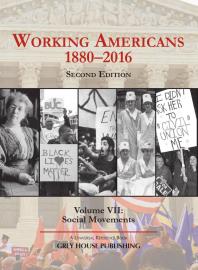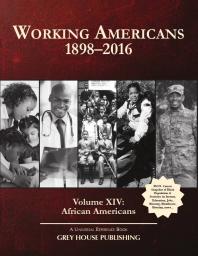 Go to A-Z Databases: Books & eBooks to search for more eBooks. Must be on campus or login with your COM account for off campus access.
Go to A-Z Databases: Books & eBooks to search for more eBooks. Must be on campus or login with your COM account for off campus access.
Want more on finding books or eBooks? Try our How to Use Books & eBooks guides.
 American Decades: 1900-1909
Cross-disciplinary source for jresearchers who need to document and analyze periods of contemporary American social history (1900-1999).
American Decades: 1900-1909
Cross-disciplinary source for jresearchers who need to document and analyze periods of contemporary American social history (1900-1999).
 American Decades: 1910-1919
Cross-disciplinary source for jresearchers who need to document and analyze periods of contemporary American social history (1910-1919).
American Decades: 1910-1919
Cross-disciplinary source for jresearchers who need to document and analyze periods of contemporary American social history (1910-1919).
 Blackwell Companions to American History: A Companion to 20th-Century America
An authoritative survey of the most important topics and themes of twentieth-century American history and historiography.
Blackwell Companions to American History: A Companion to 20th-Century America
An authoritative survey of the most important topics and themes of twentieth-century American history and historiography.
 Defining Moments in American History: The Muckrakers and the Progressive Era
Provides a detailed account of the muckraking movement in early 20th-century American journalism and its contribution to progressive reforms. Explores how the muckraking tradition and progressive political ideas have continued to the modern era.
Defining Moments in American History: The Muckrakers and the Progressive Era
Provides a detailed account of the muckraking movement in early 20th-century American journalism and its contribution to progressive reforms. Explores how the muckraking tradition and progressive political ideas have continued to the modern era.
 The Dream of America: Immigration 1870-1920
Provides a detailed account of U.S. immigration from 1870 to 1920. Explores the forces that drove emigrants to the U.S., shows what they experienced when they arrived, and reviews the history of U.S. immigration through the present.
The Dream of America: Immigration 1870-1920
Provides a detailed account of U.S. immigration from 1870 to 1920. Explores the forces that drove emigrants to the U.S., shows what they experienced when they arrived, and reviews the history of U.S. immigration through the present.
![]()
Go to OneSearch to search for more print books.
Want more on finding print books? Try our How to Use OneSearch guide.
 Featuring series that have multiple titles for this topic. Must access on campus or login with your COM account for off campus access for eBooks.
Featuring series that have multiple titles for this topic. Must access on campus or login with your COM account for off campus access for eBooks.
Want more on finding books? Try Books & eBooks.
 Working Americans, 1880-2016: Social Movements
Each volume in the widely-successful Working Americans series focuses on a particular type of American and illustrates what life was like for that group from the 1800s to the present time. The volumes are arranged into decade-long chapters, each introducing to the reader three individuals or families. Individual profiles examine life at home, life at work, life in the community, family finances and budget, cost of living and amusements. To further the reader's understanding of the time period, profiles are supplemented with national current events, economic profiles, an historical snapshot, news profiles, local news articles and illustrations derived from popular printed materials. Profiles cover a wide range of ethnic groups and span the entire country, providing a thorough examination of all types of Americans in that particular group. From a wealth of government surveys, social worker histories, economic data, family diaries and letters, newspaper and magazine features, these unique volumes assemble a rema
Working Americans, 1880-2016: Social Movements
Each volume in the widely-successful Working Americans series focuses on a particular type of American and illustrates what life was like for that group from the 1800s to the present time. The volumes are arranged into decade-long chapters, each introducing to the reader three individuals or families. Individual profiles examine life at home, life at work, life in the community, family finances and budget, cost of living and amusements. To further the reader's understanding of the time period, profiles are supplemented with national current events, economic profiles, an historical snapshot, news profiles, local news articles and illustrations derived from popular printed materials. Profiles cover a wide range of ethnic groups and span the entire country, providing a thorough examination of all types of Americans in that particular group. From a wealth of government surveys, social worker histories, economic data, family diaries and letters, newspaper and magazine features, these unique volumes assemble a rema
 Working Americans, 1898-2016: African Americans
Each volume in the widely-successful Working Americans series focuses on a particular type of American and illustrates what life was like for that group from the 1800s to the present time. The volumes are arranged into decade-long chapters, each introducing to the reader three individuals or families. Individual profiles examine life at home, life at work, life in the community, family finances and budget, cost of living and amusements. To further the reader's understanding of the time period, profiles are supplemented with national current events, economic profiles, an historical snapshot, news profiles, local news articles and illustrations derived from popular printed materials. Profiles cover a wide range of ethnic groups and span the entire country, providing a thorough examination of all types of Americans in that particular group. From a wealth of government surveys, social worker histories, economic data, family diaries and letters, newspaper and magazine features, these unique volumes assemble a rema
Working Americans, 1898-2016: African Americans
Each volume in the widely-successful Working Americans series focuses on a particular type of American and illustrates what life was like for that group from the 1800s to the present time. The volumes are arranged into decade-long chapters, each introducing to the reader three individuals or families. Individual profiles examine life at home, life at work, life in the community, family finances and budget, cost of living and amusements. To further the reader's understanding of the time period, profiles are supplemented with national current events, economic profiles, an historical snapshot, news profiles, local news articles and illustrations derived from popular printed materials. Profiles cover a wide range of ethnic groups and span the entire country, providing a thorough examination of all types of Americans in that particular group. From a wealth of government surveys, social worker histories, economic data, family diaries and letters, newspaper and magazine features, these unique volumes assemble a rema
© 2024 COM Library
1200 Amburn Road, Texas City, Texas 77591
409-933-8448 . FAX 409-933-8030
This work is licensed under a Creative Commons Attribution-NonCommercial 4.0 International License